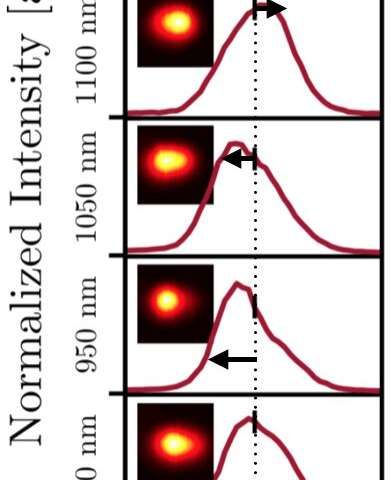At human scale, controlling temperature is a straightforward concept. Turtles sun themselves to keep warm. To cool a pie fresh from the oven, place it on a room-temperature countertop.
At the nanoscale—at distances less than 1/100th the width of the thinnest human hair—controlling temperature is much more difficult. Nanoscale distances are so small that objects easily become thermally coupled: If one object heats up to a certain temperature, so does its neighbor.
When scientists use a beam of light as that heat source, there is an additional challenge: Thanks to heat diffusion, materials in the beam path heat up to approximately the same temperature, making it difficult to manipulate the thermal profiles of objects within the beam. Scientists have never been able to use light alone to actively shape and control thermal landscapes at the nanoscale.










Comments are closed.